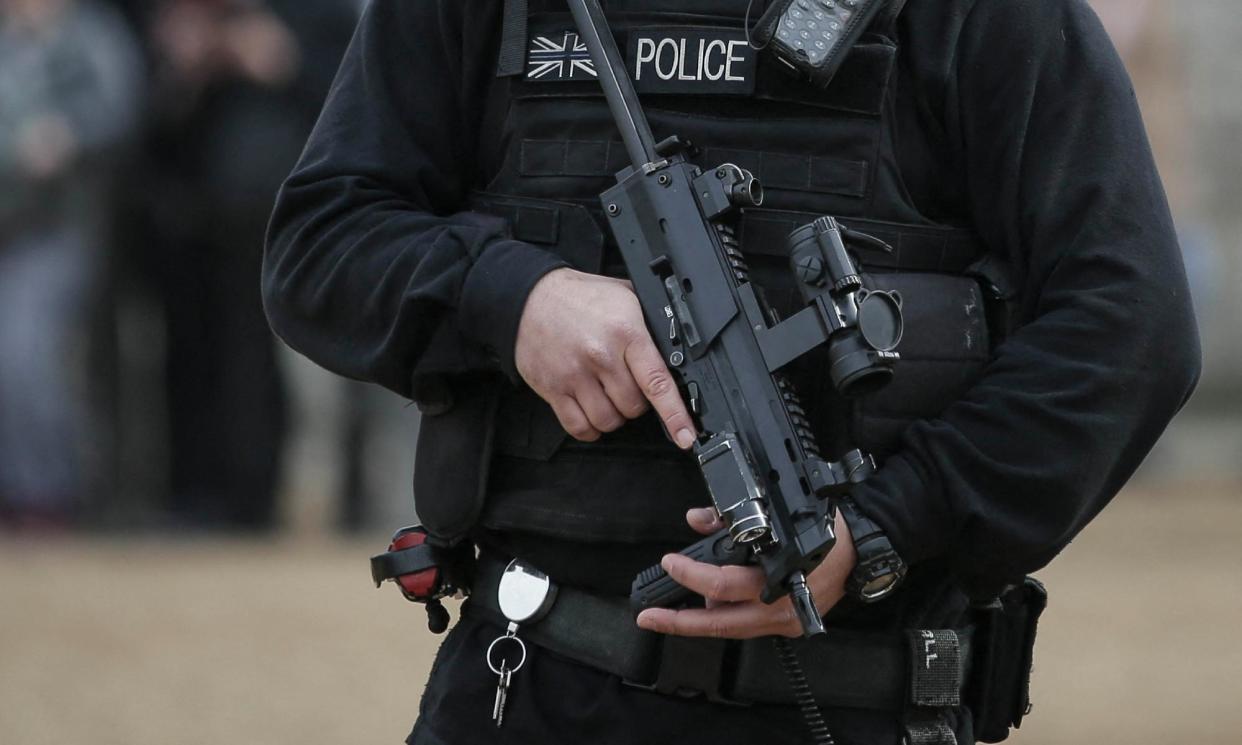Met police accused of failing to address toxic culture in firearms unit

The Metropolitan police has been accused of failing to deal with the “toxic culture” inside its firearms unit after the number of internal misconduct investigations rose to its highest level since 2018.
A wide-ranging investigation by Baroness Louise Casey last year found that the Met was institutionally racist, homophobic and misogynistic. Casey singled out its Specialist Firearms Command unit – also known as MO19 – accusing it of having a “deeply troubling, toxic culture” where “normal rules do not seem to apply” and staff were “well-connected to senior officers in the Met”.
But the Observer has found that in the year since the report was published, the number of internal “conduct matter” allegations against its officers has increased to 56. It took formal action against just four. One officer was dismissed, another had a written warning and two were awaiting final outcomes.
The findings have led to accusations from campaigners that promises to deal with the concerns outlined by Casey “have at best stalled, and possibly regressed”.
“Conduct matter” cases are those where officers are subject to internal investigations as a result of misconduct or criminality identified by their own force. They can often relate to criminal offences and lead to more dismissals and more serious formal action than cases related to public complaints.
Since 2018, the unit has been subject to 232 “conduct matter” allegations, as well as 1,874 public complaint allegations, almost equivalent to one for each of the 2,339 officers employed by the unit. Of those cases, 61 – or 2.8% – led to formal action being taken against the officer in question, including seven dismissals and one case where the officer would have been dismissed.
The Casey review said that sexism was in plain sight in the unit, citing a litany of sexist incidents including one occasion when a poster was put up in the MO19 common area “which had been photoshopped to show female firearms officers carrying mops, irons and kettles instead of weapons”. It added that there was a clear pattern of male officers accused of sexual misconduct being temporarily reassigned to avoid them facing investigation or punishment.
In a survey of female officers who had left the unit, the investigators found that every single one reported being “directly impacted by sexist and misogynistic behaviour” in the unit.
Some of the most prominent cases of misconduct and criminality in the Met have concerned officers with firearms privileges.
Both Wayne Couzens, the officer who murdered Sarah Everard in 2021, and serial rapist David Carrick were armed officers in the Parliamentary and Diplomatic Protection unit, another armed unit singled out by Casey’s report but not covered by the new data released by the Met.
“The Casey review laid bare the toxic culture of MO19 in the hope that lessons would be learned,” said Habib Kadiri, executive director of policing reform group Stop Watch.
“Nothing short of immediate and drastic action was needed. Instead, we have evidence that efforts to root it out have at best stalled, and possibly regressed.”
A spokesperson for the Met stressed that firearms officers perform a “very challenging role, demonstrating bravery, discipline and decisiveness when confronting high-risk situations” but stressed that the force was “not complacent” and that checks on firearms officers had been increased.
They said that the force has acted swiftly on Baroness Casey’s criticisms and has established a programme “to address all identified areas of cultural concern, to improve the gender and diversity mix, setting clear expectations of behaviour and professional standards, developing standards of supervision, behaviour and conduct and improving the working environment and practices”.

 Yahoo News
Yahoo News 
